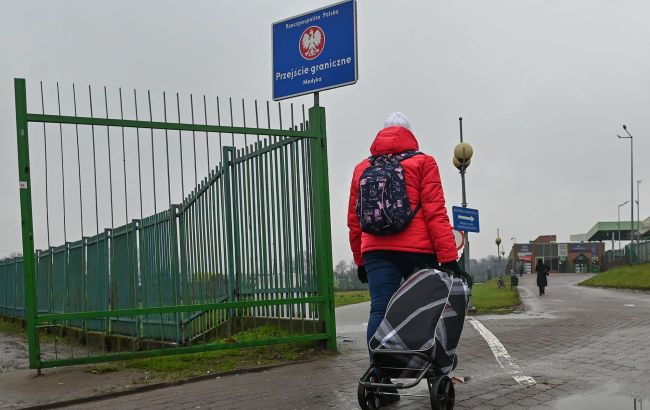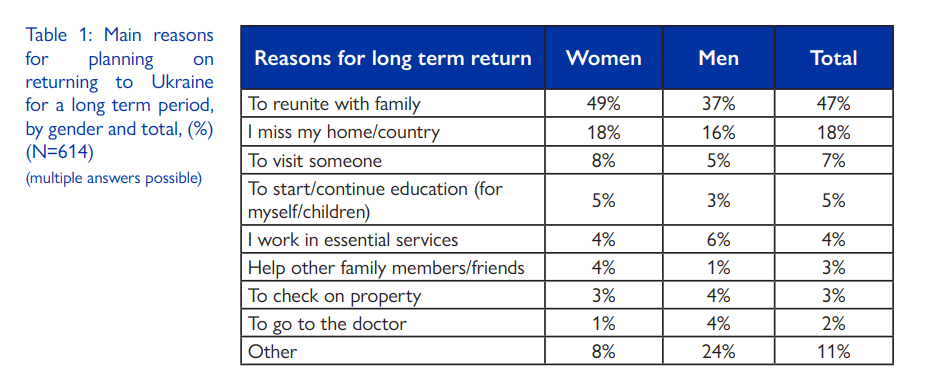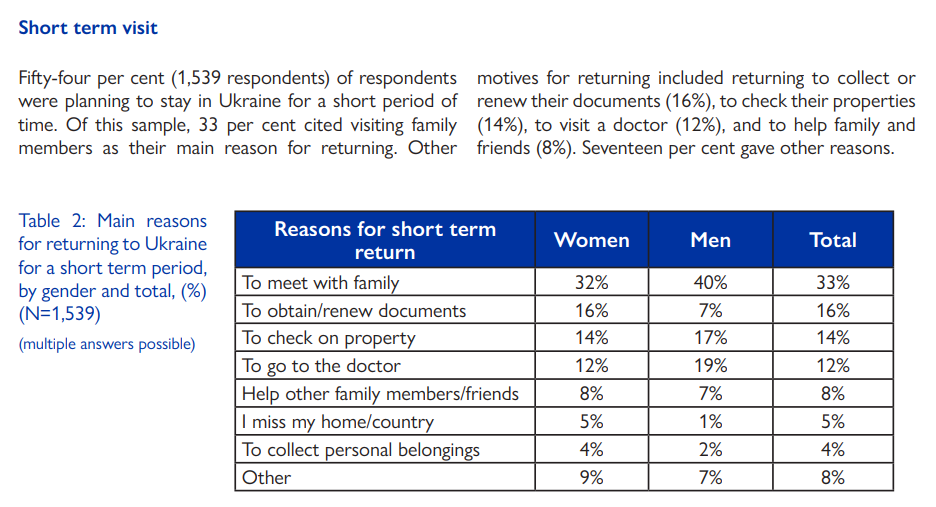Ukrainian refugees return home despite war: Reasons
 Why Ukrainian refugees return home despite war (Getty Images)
Why Ukrainian refugees return home despite war (Getty Images)
As of August 2023, 2.4 million Ukrainians who went abroad have returned to Ukraine. About the same number of Ukrainian citizens have left and not returned, meaning roughly 50% of refugees are already back home, according to the International Organization for Migration.
According to the report, 54% of respondents returned to Ukraine for a period of less than 30 days, while 21% indicated their intention to stay in Ukraine.
The most common reason for permanent return, both for men and women, is family reunification, with 37% and 49% responding accordingly.
The second most common reason is homesickness for the native country and home. 18% of women and 16% of men cited this as their motivation.
Among other reasons are:
- Starting or continuing education (for oneself or children) - 5% of respondents
- Working in essential services - 4%
- Helping family and friends - 3%
- Checking on their property - 3%
- Visiting a doctor - 2%

However, Ukrainians returning home for a short period have different reasons. Once again, the most popular reason is family and close relationships, chosen by 32% of women and 40% of men.
Further statistics include:
- Obtaining or renewing documents - 16% of respondents
- Checking on property - 14%
- Visiting a doctor - 12%
- Helping family or friends - 8%
- Nostalgia for the homeland - 5%
- Collecting personal belongings - 4%

What Ukrainians need to return home
22% of respondents reported that they would need financial support upon returning to Ukraine. Other mentioned needs include:
- Support for medical services - 9%
- Personal security - 8%
- Long-term housing - 6%
- Employment - 4%
Only 3% of respondents indicated a need for support with food or medicines. 35% of those surveyed reported having no urgent needs.

